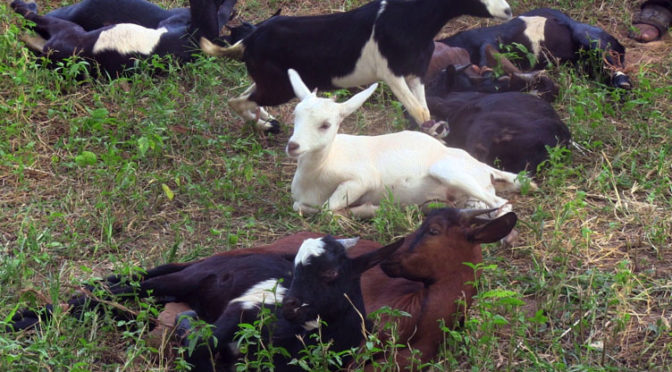Mbire is an underdeveloped district situated close to the area bordering Zimbabwe, Zambia and Mozambique. It lies in Natural region V and receives very little rainfall and cotton farming is the main economic activity for most people. Due to the limited rainfall, other crops do not do well. To compound the challenges; the farming of other crops is not that productive because the land is dry and there is massive land degradation which has been exacerbated by stream bank cultivation. Cotton prices have, however, not been favorable over the last few years resulting in the majority of the people, particularly women living in poverty. The villagers revealed that at times people rely on wild fruits such as masau \Ziziphus mauritiana (small fruits mostly found in dry seasons or dry regions) for food. These economic challenges have various effects on the community. The Ministry of Women Affairs, Gender and Community development reported that an average of 240 pupils dropped out of school from January to June 2017 chiefly because of early child marriages, with an average of 40 child marriages per month. Mbire District has a population of close to 85 000 people. Of that total population, 5000 people are HIV positive and around 29 000 children are orphaned due to HIV and related diseases.
Given these challenges there has been a need to come up with strategies that are sustainable and pragmatic to try and curb the challenges the people of Mbire face. The members of the community have thereby drafted an action plan as a strategy to cope with the shocks and stress the community faces such as child marriages which are mostly fueled by drought, poverty and high rates of school drop outs. The community members chose to undertake a goat rearing project as their choice of livelihood activity, aimed at curbing the above mentioned causes of child marriages. Goats are resilient to droughts, floods and also diseases and thrive better under such conditions.
The desire to have a goat rearing project in Mbire has become a lived reality for the residents as VSO availed funds to sustain the livelihood project with Katswe being its major supporting partner on the project. With funds at disposal 100 goats were purchased after a thorough check to ensure healthy and fit goats would be handed over to the people. From the goats,11 groups were formed with 10 of them being of adolescent girls and young women while the other one being for male champions with the hope that they will be able to educate and enlighten their fellow male counterparts to support their families with sanitary wear, maternity fees as well as basic access to medical care facilities. The project has largely been successful. The goal is to upscale the current efforts and hopefully grow the project to benefit even more members of the community.

